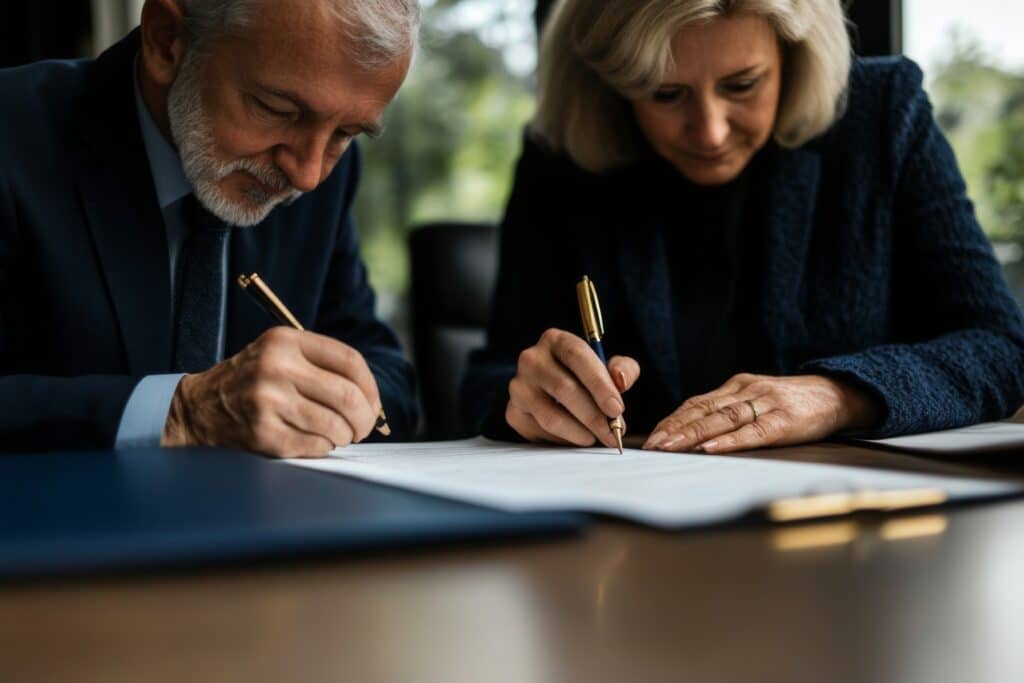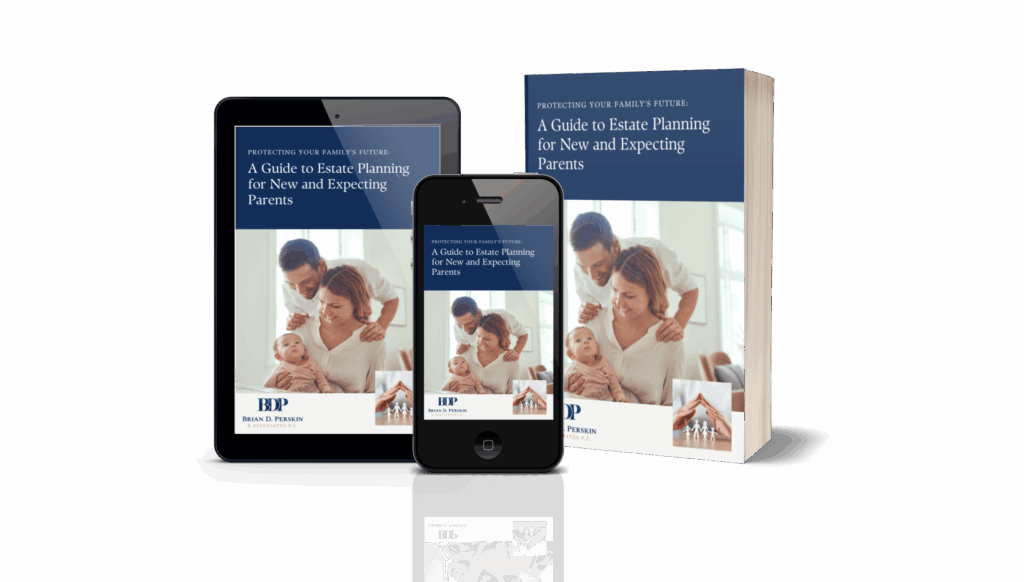Probate in New York City
The New York City probate process explained by the experienced attorneys at Brian D. Perskin & Associates PC.
Probate in New York is the legal procedure used to settle a deceased person’s estate, ensuring that assets are properly distributed and outstanding debts are resolved. A person’s estate includes everything they owned—real estate, financial accounts, personal property—and any debts they owed. Probate in New York is often required when someone passes away without a well-structured estate plan, such as a last will and testament or a trust agreement, but it can also be necessary even if they had a will. Understanding whether an estate requires probate is essential, and working with an experienced New York probate attorney can help ensure the process is handled efficiently and in accordance with the law.
What Happens During Probate in New York?
When probate is required, the court oversees the administration of the deceased person’s estate. This process typically involves appointing an Executor (also known as a Personal Representative) who is responsible for managing the estate and ensuring all legal requirements are met.
Executor’s Responsibilities
An Executor is responsible for locating and securing the deceased’s assets, including real estate, bank accounts, and personal belongings, to ensure proper management throughout the probate process. They must also settle any outstanding debts, including funeral costs, taxes, and other financial obligations, before distributing assets. As part of their duties, the Executor files the necessary court documents, providing an inventory of assets and debts while notifying beneficiaries of the estate proceedings. Once all legal and financial obligations are met, the remaining assets are distributed according to the will, or if no will exists, in accordance with New York intestacy laws. Probate is a court-supervised process and the Executor must adhere to New York probate laws, making legal guidance from an experienced New York City Probate Attorney essential to ensure accuracy and efficiency at every step.


How Long Does the Probate Process Take?
The length of the probate process varies depending on the complexity of the estate. A straightforward probate case with no disputes typically takes six months to a year to complete. However, if the estate is more complex, there are challenges to the will, creditor claims, or disputes over asset distribution, the process can extend to two to three years or longer. Working with an experienced probate attorney in New York City can help streamline the process, minimize delays, and protect your interests throughout probate.
How Much Does Probate in New York Cost?
The cost of probate varies depending on the size of the estate and the complexity of the case. In New York City, common factors that impact the cost of the probate process include:
- Court Filing Fees
- Attorney Fees
- Administrative costs for managing the estate
- Appraisal fees for real estate and other property
While New York does not have a statutory fee structure based on estate value like some states, the cost of probate typically ranges from $3,000 to $10,000 or more, depending on the complexity of the estate and the level of legal assistance required. Larger estates or contested probate cases may incur significantly higher costs due to litigation and additional legal proceedings.
The Difference Between Contested and Uncontested Probate in New York
The probate process can either be uncontested or contested, and understanding the differences is essential in preparing for potential challenges.

Uncontested Probate
When all heirs and beneficiaries agree on the terms of the estate distribution, probate proceeds smoothly and follows the directions in the will or New York’s intestate succession laws if no will exists. This process is faster, less expensive, and requires minimal court intervention, as there are no disputes to resolve.
Contested Probate
A probate case becomes contested when disputes arise regarding:
- The validity of the will (e.g., claims of undue influence, fraud, or improper execution).
- Who should serve as Executor or Personal Representative.
- How assets should be distributed among beneficiaries.
Contested probate can lead to litigation, increasing the time, complexity, and cost of the process. Court hearings are often required to resolve disputes, and in extreme cases, estate distribution may be delayed for years.

What Happens If There Is No Will?
If a person dies without a will, their estate is governed by New York’s intestacy laws, which determine how assets are distributed and who will oversee the estate. Instead of an Executor named in a will, the court appoints an Administrator to manage the estate, with priority typically given to the surviving spouse or closest family member. However, disputes may arise if multiple relatives have equal standing, potentially delaying the process. If no eligible family members step forward, the court may appoint a public administrator to handle the estate, ensuring that assets are distributed in accordance with state law.
How Assets Are Distributed Without a Will in New York?
New York intestacy laws distribute assets in a predetermined order, prioritizing spouses, children, parents, and other close relatives. Non-relatives, including unmarried partners, close friends, or charitable organizations, do not receive any inheritance under intestacy laws. If no legal heirs can be found, the estate may be absorbed by the state. Because intestate estates often face delays and legal disputes, working with an experienced probate attorney in New York City is important to ensuring the process moves forward efficiently.
How Our New York City Probate Attorneys Can Help
Whether your loved one left a will or not, navigating the probate process can be overwhelming, especially during an emotionally difficult time. At Brian D. Perskin & Associates, our experienced probate attorneys are here to provide guidance, support, and legal representation at every stage of the process.
We assist clients with:
- Evaluating whether probate is necessary and outlining the required legal steps.
- Preparing and filing all probate documents with the court.
- Managing estate assets, debts, and legal obligations.
- Representing clients in contested probate cases and resolving disputes.
- Ensuring assets are distributed in accordance with the law.
If you are facing the probate process in New York City, our team is here to make it as smooth and stress-free as possible. Contact Brian D. Perskin & Associates today to schedule a consultation and get the legal support you need.
A Guide To Estate Planning for New and Expecting Parents
Learn how to protect your assets, appoint guardians for your children, and ensure your wishes are honored, all in a straightforward, easy-to-understand format.
Need assistance with probate proceedings? Contact our probate specialists at Brian D. Perskin & Associates PC for professional support. Call 718.752.7426 to learn how we can manage your estate concerns with care and expertise.
Contact our New York City Probate Lawyers Today
Ensure the estate is administered efficiently, contact our New York City probate attorneys today for expert guidance.
4.5/5

4.9/5

5/5






